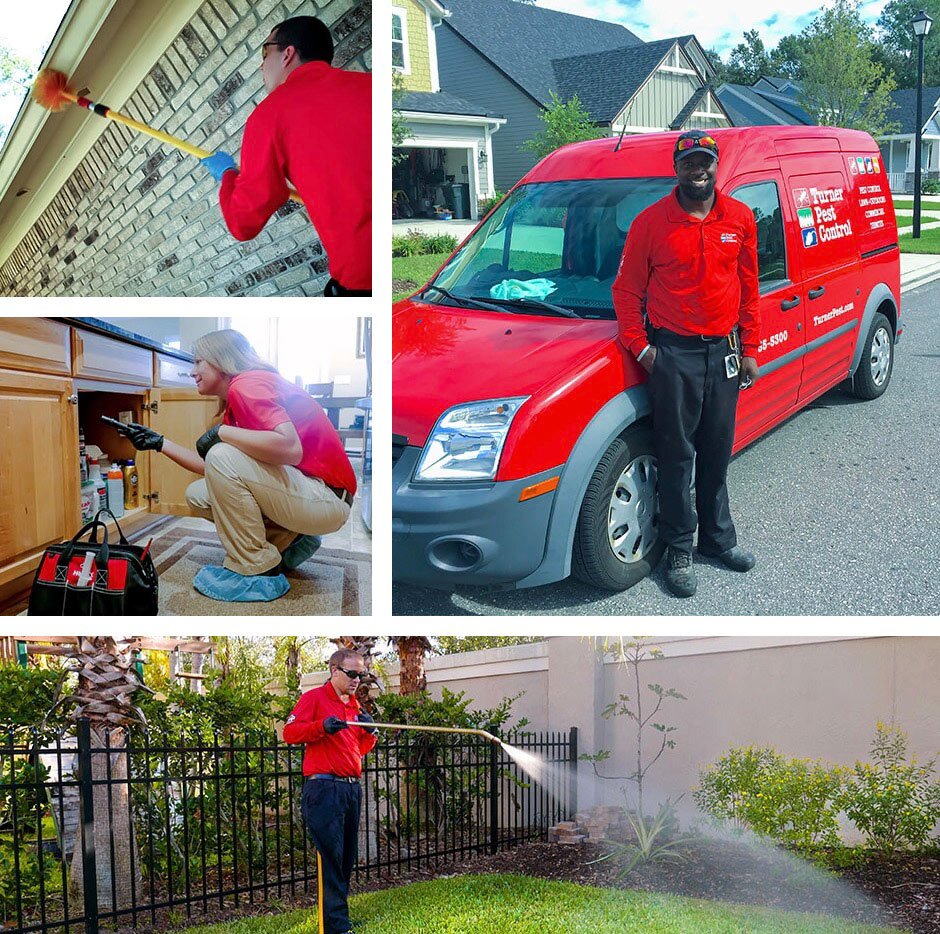Recognizing Different Sorts Of Pest Control Techniques and Their Effectiveness
When considering insect control approaches, it is vital to understand the diverse strategies available and their varying levels of performance. By discovering the subtleties of these insect control methods, a thorough understanding of how to attend to insect problems can be created.
Chemical Insect Control Methods
Chemical pest control methods play a pivotal role in successfully handling and getting rid of pest infestations in different settings. One of the essential benefits of chemical pest control is its ability to give quick and targeted services to pest troubles. Pest Control Auckland.
However, it is necessary to think about the prospective threats and disadvantages associated with chemical bug control approaches. Overreliance on chemicals can bring about the growth of pesticide resistance in parasites, making them tougher to regulate over time. Additionally, making use of particular chemicals can have dangerous impacts on non-target microorganisms, the setting, and human health otherwise applied appropriately.

Organic Insect Control Techniques
Using natural killers and virus to handle pest populations successfully, organic insect control approaches provide a environment-friendly and lasting approach to pest management. By introducing or promoting the activity of microorganisms that normally victimize or contaminate bugs, such as ladybugs for aphid control or particular bacteria for caterpillar problems, organic control can assist preserve insect populations at workable degrees without the demand for artificial chemicals. This technique is particularly advantageous for organic farming techniques, as it stays clear of making use of possibly unsafe materials while maintaining crop health.

Physical Parasite Control Methods
While biological parasite control methods focus on using natural predators and microorganisms, physical pest control methods use physical and mechanical obstacles to manage pest populaces. These approaches are typically taken into consideration ecologically pleasant as they lessen the usage of chemicals. Physical bug control consists of methods such as capturing, utilizing barriers like displays or internet, and literally eliminating parasites from the location.
Catches are frequently utilized in physical bug control to catch and eliminate bugs like bugs and rats. These traps can be baited with food or pheromones to draw in the pests, leading them to a had area where they can be easily taken care of. One more physical method is using obstacles such as screens, internet, or fences to avoid parasites from entering or infesting specific areas. Setting up fine mesh displays on windows can help keep out flies and insects. Pest Control Auckland.
Natural Insect Control Methods
Integrating plant-based repellents and natural predators is an essential technique in carrying out reliable all-natural insect control techniques. By urging the visibility of useful pests like ladybugs, lacewings, or aggressive termites, garden enthusiasts can naturally control pest populaces. These killers eat common yard bugs such as termites, caterpillars, and aphids, helping to preserve a well balanced ecological community without the demand for chemical interventions.

Furthermore, applying social practices such as plant turning, companion growing, and keeping correct plant health and wellness can also boost the performance of natural pest control techniques. These strategies not only assist in stopping insect problems yet likewise promote biodiversity and total community resilience. By incorporating these natural techniques, people can successfully handle insects while reducing environmental influence.
Integrated Bug Monitoring (IPM) Technique
Carrying Out an Integrated Parasite Management (IPM) approach is necessary for efficiently managing insect populations while reducing reliance on chemical pesticides. IPM is a detailed and lasting approach that incorporates various insect control approaches to achieve long-term remedies. This method concentrates on prevention, control, and tracking to resolve insect issues in an eco-friendly way.
IPM incorporates biological, cultural, physical, and mechanical strategies with the minimal and calculated use of chemicals when necessary. By stressing aggressive measures such as environment modification, organic control, and exclusion, IPM intends to minimize insect populaces and their impact on the environment. Routine tracking is vital in IPM to analyze bug degrees precisely and figure out one of the most appropriate control techniques.
Among the vital advantages of IPM is its ability to decrease the threats connected with excessive chemical use, such as environmental contamination and harm to non-target microorganisms. In addition, IPM advertises a more all natural method to pest monitoring by considering the general community dynamics. In general, the IPM approach supplies a efficient and sustainable solution for insect control while promoting environmental obligation.
Conclusion
In conclusion, comprehending the various click for more types of pest control approaches and their efficiency is essential in successfully managing parasite problems. Chemical, biological, physical, and natural insect control methods each have their own advantages and constraints. Integrated Parasite Management (IPM) method, which incorporates various techniques for lasting insect control, is significantly being acknowledged as a ecologically friendly and alternative solution. By utilizing a mix of these companies, techniques and people can effectively control insects while minimizing injury to the setting.
Chemical bug control approaches play a crucial role in efficiently taking care of and removing pest infestations in numerous atmospheres.Utilizing natural killers and virus to take care of bug populaces successfully, biological pest control methods supply a lasting and environmentally friendly strategy to pest administration. By advertising the activity or presenting of microorganisms that naturally prey on or infect parasites, such as ladybugs for aphid control or specific germs for caterpillar infestations, organic control can aid keep pest populations at manageable degrees without the requirement for artificial chemicals.While organic insect control methods concentrate on taking advantage of natural killers and you can check here microorganisms, physical insect control approaches use mechanical and physical obstacles to handle bug populations. Integrated Pest Monitoring (IPM) method, which incorporates different approaches for lasting parasite control, is increasingly being acknowledged as a environmentally pleasant and holistic option.
Comments on “Expert Pest Control Auckland: Trusted Services for Your Assurance”